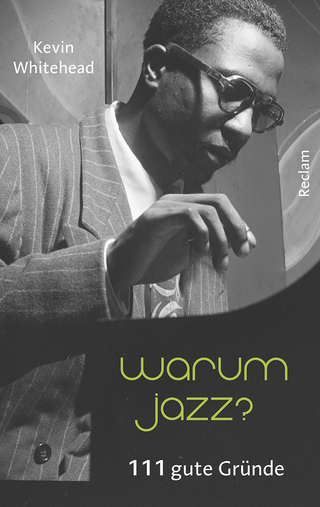
Sax Expat
Don Byas
Seiten
2025
University Press of Mississippi (Verlag)
978-1-4968-5607-4 (ISBN)
University Press of Mississippi (Verlag)
978-1-4968-5607-4 (ISBN)
- Noch nicht erschienen (ca. April 2025)
- Versandkostenfrei innerhalb Deutschlands
- Auch auf Rechnung
- Verfügbarkeit in der Filiale vor Ort prüfen
- Artikel merken
Don Byas (1913–1972) may be lesser known than the counterparts he played with—Count Basie, Duke Ellington, and Dizzy Gillespie, among others—but he was an enigma. He never stayed with a band for long, and eventually went solo partly to make more money and partly due to his inability to work with bandleaders. Often drinking to excess, alcohol fueled his sometimes-erratic behavior on and off the bandstand. He went through at least thirteen different groups in fifteen years of professional play before leaving for Europe in 1946.
Despite his fractious personality, in Europe he found peace and contentment as a family man in the Netherlands, where he lived out his days with his second wife and their four children. He learned at least seven languages during his years in Europe, and on traveling to a new country could pick up a few phrases in short order, soon speaking to the locals and even composing songs in their native tongue.
In Sax Expat: Don Byas, author Con Chapman argues that Byas’s relative obscurity arises from his choice to live in Europe, where he missed out on recording opportunities and exposure in the US that would have made him renowned and wealthier. His numerous achievements, including his solo on Count Basie’s "Harvard Blues," which is a model of restrained invention; his interpretation of the sentimental movie theme "Laura"; and his duets with bassist Slam Stewart were included in the Smithsonian Collection of Classic Jazz and secured Byas’s place in jazz history. This biography brings to life an amazing jazz story.
Despite his fractious personality, in Europe he found peace and contentment as a family man in the Netherlands, where he lived out his days with his second wife and their four children. He learned at least seven languages during his years in Europe, and on traveling to a new country could pick up a few phrases in short order, soon speaking to the locals and even composing songs in their native tongue.
In Sax Expat: Don Byas, author Con Chapman argues that Byas’s relative obscurity arises from his choice to live in Europe, where he missed out on recording opportunities and exposure in the US that would have made him renowned and wealthier. His numerous achievements, including his solo on Count Basie’s "Harvard Blues," which is a model of restrained invention; his interpretation of the sentimental movie theme "Laura"; and his duets with bassist Slam Stewart were included in the Smithsonian Collection of Classic Jazz and secured Byas’s place in jazz history. This biography brings to life an amazing jazz story.
Con Chapman is a Boston-area writer and author of Rabbit’s Blues: The Life and Music of Johnny Hodges, winner of the 2019 Book of the Year Award by Hot Club de France, and Kansas City Jazz: A Little Evil Will Do You Good, nominee for 2023 Book of the Year Award by the Jazz Journalists Association. His work has appeared in The Atlantic, the Boston Globe, the Boston Herald, and other publications.
| Erscheint lt. Verlag | 15.4.2025 |
|---|---|
| Reihe/Serie | American Made Music Series |
| Zusatzinfo | 25 b&w illustrations |
| Verlagsort | Jackson |
| Sprache | englisch |
| Maße | 152 x 229 mm |
| Themenwelt | Literatur ► Biografien / Erfahrungsberichte |
| Kunst / Musik / Theater ► Musik ► Jazz / Blues | |
| ISBN-10 | 1-4968-5607-4 / 1496856074 |
| ISBN-13 | 978-1-4968-5607-4 / 9781496856074 |
| Zustand | Neuware |
| Informationen gemäß Produktsicherheitsverordnung (GPSR) | |
| Haben Sie eine Frage zum Produkt? |
Mehr entdecken
aus dem Bereich
aus dem Bereich
zur politischen Ästhetik des Jazz
Buch | Hardcover (2023)
Phillip Reclam (Verlag)
38,00 €
Die Geschichte des Jazz in Deutschland
Buch | Softcover (2021)
Reclam, Philipp (Verlag)
20,00 €


